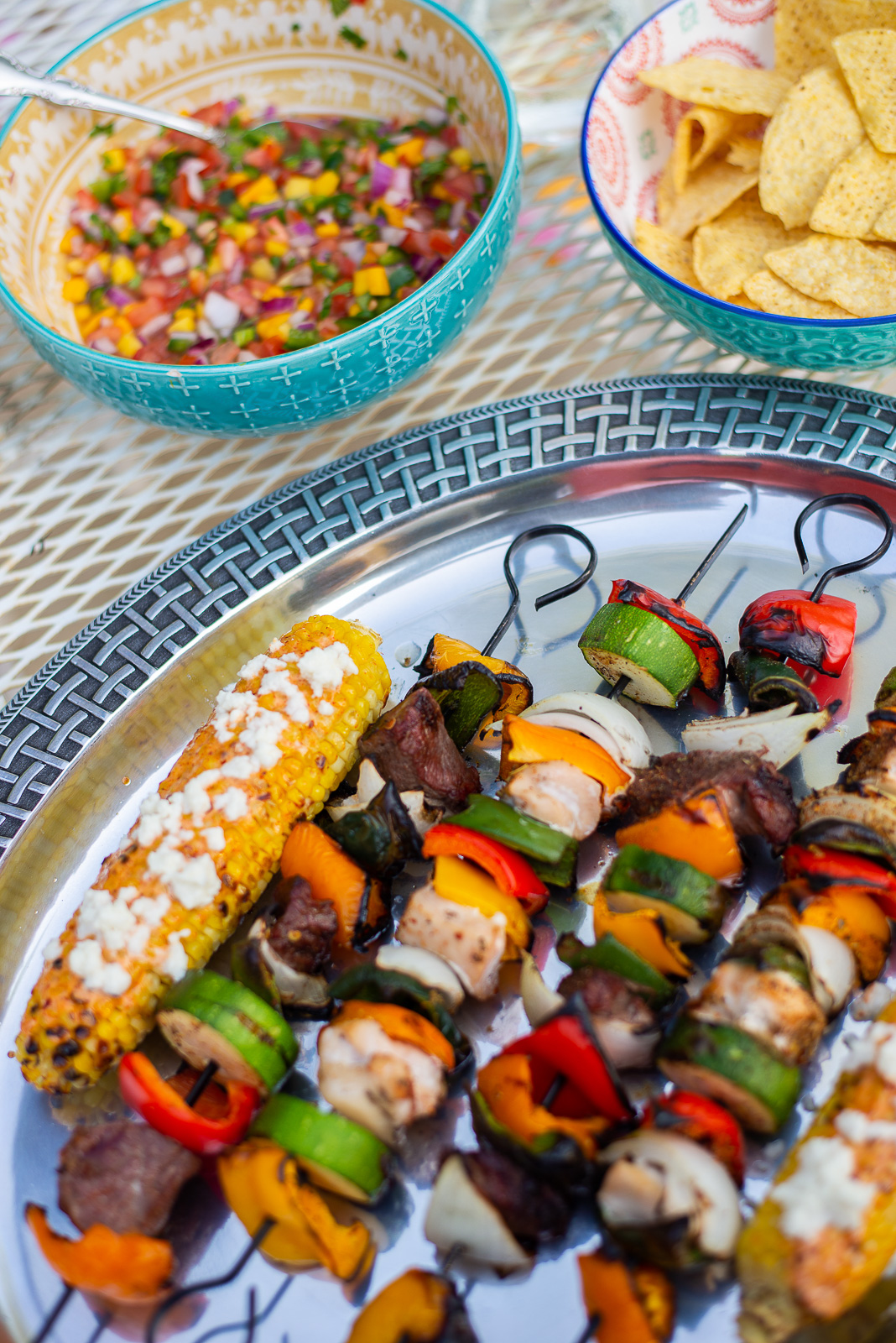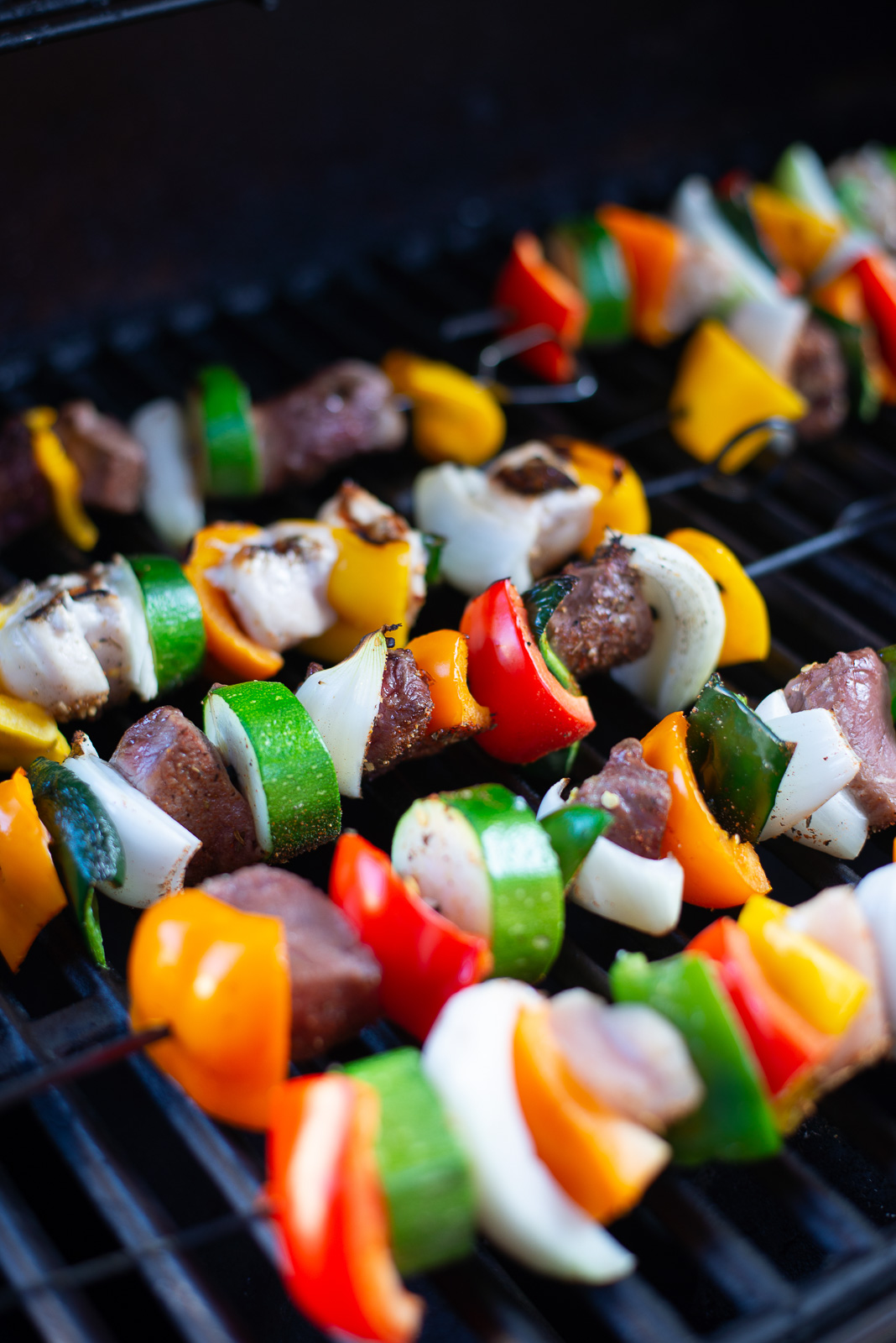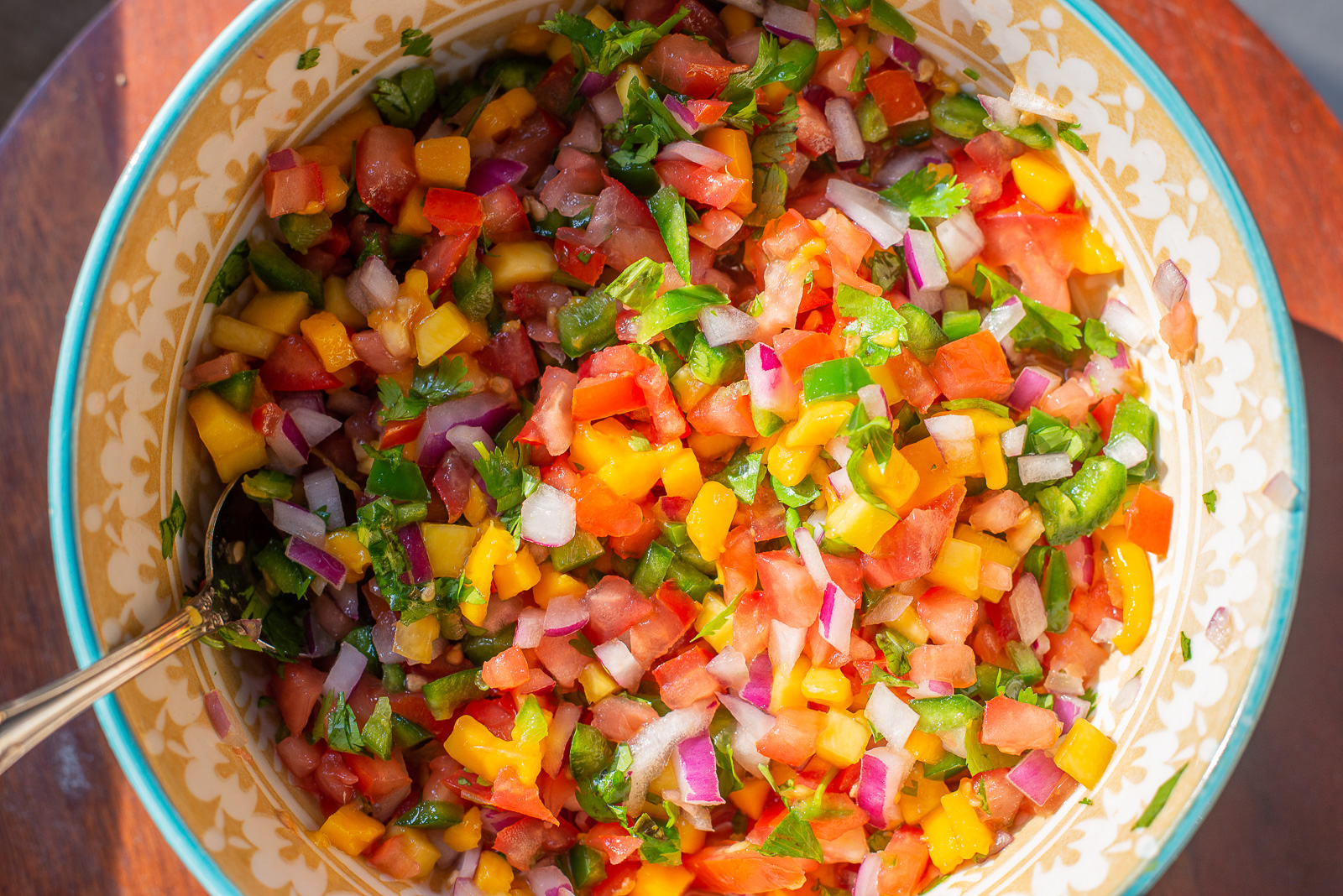While you should never need an excuse to throw some meat on the grill, summer is ripe with them nonetheless. Labor Day and the Fourth of July, backyard get-togethers and back-to-school barbecues — if you don’t end the summer with the meat sweats, you’ve done something wrong.
But if the thought of moving past the classic burgers and dogs leaves you unsure, the Oak Cliff Fantasy Football League has you covered.
We sat down with several members of the OCFFL who compete in the annual Blues, Bandits & BBQ festival to discuss their tips and tricks for pulling off the perfect grilled masterpiece.
Their credentials?
Over the course of three competition years, the team has brought home the award for first-place chicken (an improvement from their first year, when they placed sixth) and claimed several People’s Choice awards. The OCFFL has also been awarded the Best Overall title by the competition judges.
So follow their guidance, and you won’t feel like you’re playing with fire the next time you step up to the flame.
Butcher knows best
At the heart of every successful meal is quality ingredients, says OCFFL member Chris Culak.
Over the years of competition, the OCFFL has specialized in chicken dishes. Culak says when the team was starting out, they realized the importance of selecting the highest-caliber ingredients possible.
“Your first step is you have got to start with the right food, the right meats. You have to make sure what you’re getting is good-quality stuff,” Culak says.
The OCFFL regularly goes to Cooper’s Meat Market at Sylvan 30 for competition meats, Culak says, but any grocery store with a meat counter will provide the opportunity to “use an expert” to ensure the meat you are purchasing is the best possible cut and amount for your planned meal.
Before any BBQ, Culak recommends informing your local butcher of type of meat you’re planning to cook, how many people you’re feeding and any other information that can help them help you.
“I’m not not a meat expert. I’m not a chicken expert. But if I’m going to buy meat, and I’m going to use it in a family barbecue, or in (the Blues, Bandits & BBQ contest), I want the guy who’s the expert in the meat shop to tell me what I need,” Culak says.
Get good gear
If there is one thing Kam Naidoo knows, it’s fire.
The pitmaster for the OCFFL, Naidoo is responsible for staying up all night with the team’s fire during the Blues, Bandits & BBQ competition to ensure the fire is burning and the food is cooking according to plan.
And as a fan of the flame, his biggest tip is to stay away from gas grills.
“The whole part of grilling is to impart that flavor, and charcoal or lump coal is going to do the best thing,” Naidoo says.
The Weber Kettle Grill is the perfect starter grill, Naidoo says, coming in at a low price point and providing “basic but amazing” results.
The kettle grill allows the griller to apply direct heat for a traditional result or bank coals to the side for a smoking effect.
“If someone’s starting out, or even if someone has some experience and wants to venture away from just pressing a button and lighting up a gas grill, that’s where I would go. And that gives you a whole world of opportunity to play around with the types of meat you cook,” Naidoo says.
Oak Cliff’s own NOMAD Grill is another Naidoo-endorsed grill for anyone who “wants to play around with something fun.”
Aim for Flavortown
There’s no reason to be scared of a little seasoning.
When it comes to flavoring your meat, selecting a seasoning combination, a marinade or a rub is critical, Naidoo says.
If you don’t know where to start, many grocery stores offer pre-marinated meats at the butcher counter that vary from traditional BBQ sauce to lemon pepper, teriyaki, fajita seasonings and anything else you can think of.
After years of barbecuing, Naidoo says he has uncovered flavor tricks that, while simple, elevate his dishes to the next level.
“Most people are just going to throw a piece of salmon on the grill and not think about it. But I use cedar boards, most grocery stores sell those, and just adding that … imparts an amazing flavor into the fish. Just something little changes whatever you’re eating so substantially,” Naidoo says.
If you’re interested in the cedar board trick, Naidoo soaks his planks in water before putting them on the grill with the fish on top. The board will char but not ignite, adding flavor to the dish.
And as any host knows, side dishes are just as important in making your meal shine.
Naidoo says simple tricks like adding vegetable skewers or foil-wrapped potatoes to your grill while cooking meats can help pull a well-rounded meal together effortlessly.
When Grilling: Keep it hot
So maybe you have the right meat and the right equipment, and things still aren’t turning out exactly the way you hoped.
Culak recommends double-checking your heat.
“I think a big piece of what a lot of guys do at home is they don’t get their grills hot enough. You’re taking the chicken or your ribs, your pork or whatever you’ve marinated, out of the refrigerator, and you’re sticking it out on a grill. And if your grill isn’t hot enough, the temperature can come down pretty quick,” Culak says.
In the barbecue contest, the OCFFL cooks all night long (thanks, Naidoo); keeping the fire consistently hot is the key to being successful.
It’s something that requires more preparation than most realize, Naidoo says. Weather can play a factor; if it’s cold outside, you are likely going to need more wood or coals than you would on a blazing summer day.
When Smoking: Low and slow
For a smokier protein, patience is not just a virtue, Naidoo says. It’s a requirement.
Smoking meat takes a significantly longer period of time and a lower temperature than grilling. This allows the smokey flavor to seep into the meat without the outside cooking too quickly.
Keeping that low temperature consistent throughout the entire process is necessary to the smoking technique, Naidoo says.
“If you’re smoking a 12-pound brisket, you’re trying to cook it around 225-250 degrees, and it’s going two take 12 to 16 hours or so. You have to keep that temperature consistent. If it drops to 150 and then next thing you know, it’s up to 375, that’s going to kill that piece of meat,” Naidoo says.
When it comes to smoking, Naidoo also says it’s difficult to overseason your meat. Meats that are smoked are generally much larger than those that are grilled, so you “have to season more than you think you do” to make sure your entire hunk is flavorful.
Nail down a signature dish
The opportunities in grilling are endless.
From chicken to beef, pork to sausage, fish to brisket, Culak understands if you love it all.
But mastering it all is no small task.
Instead, he advises perfecting one protein at a time to maximize satisfaction with the meal and the hobby.
“Really go for what you’re most comfortable in making and really try to improve on that particular item,” Culak says.








